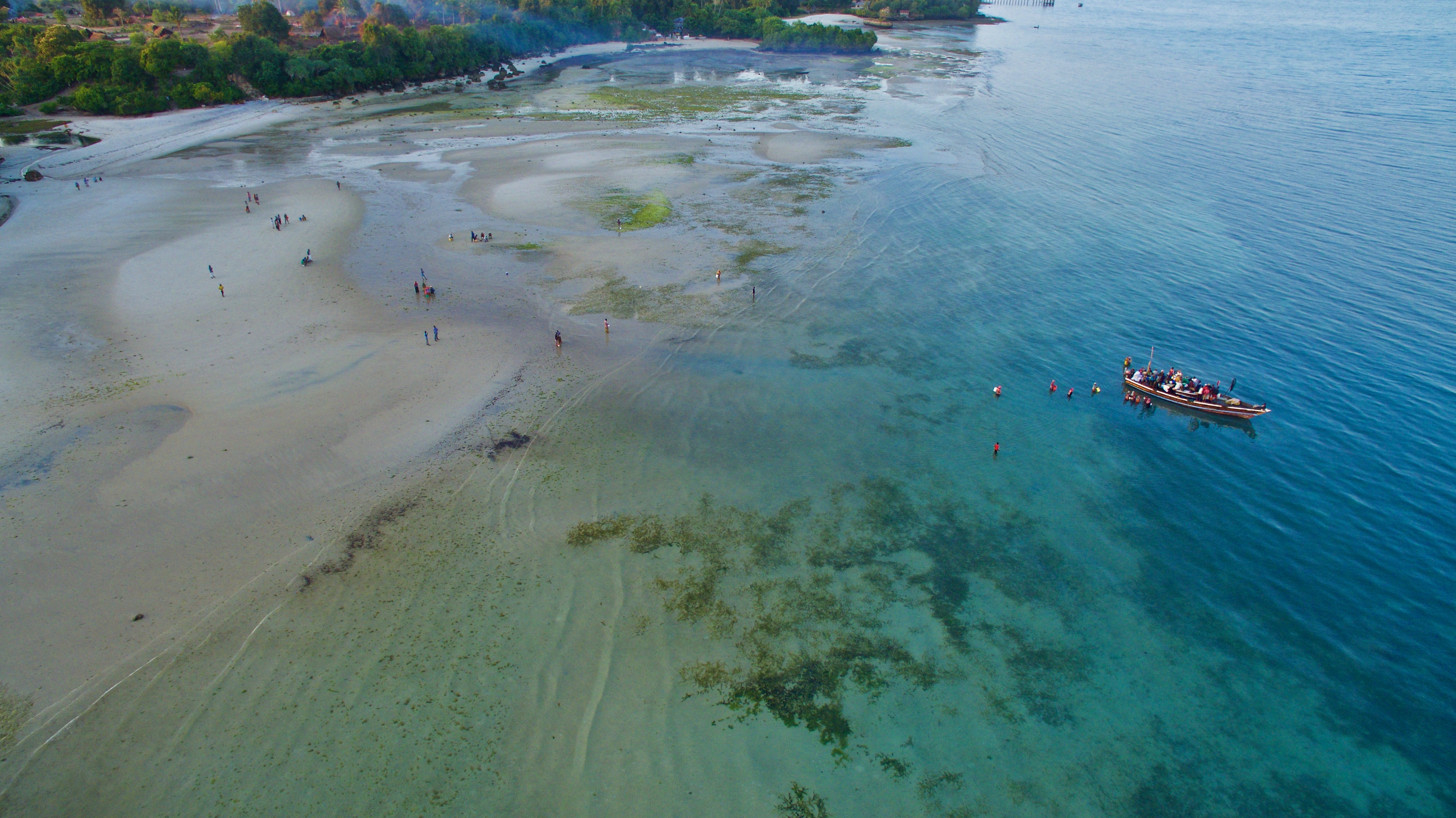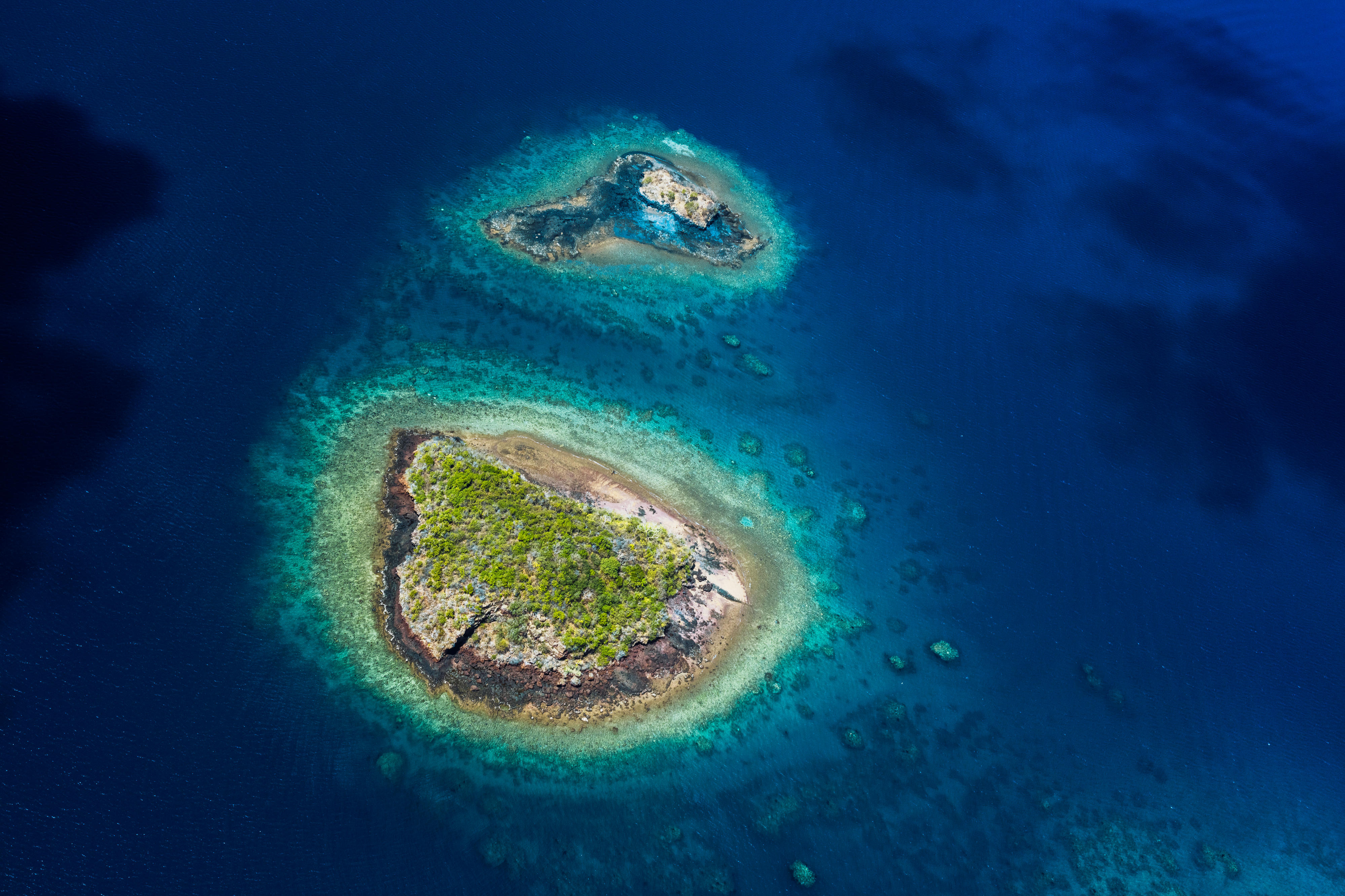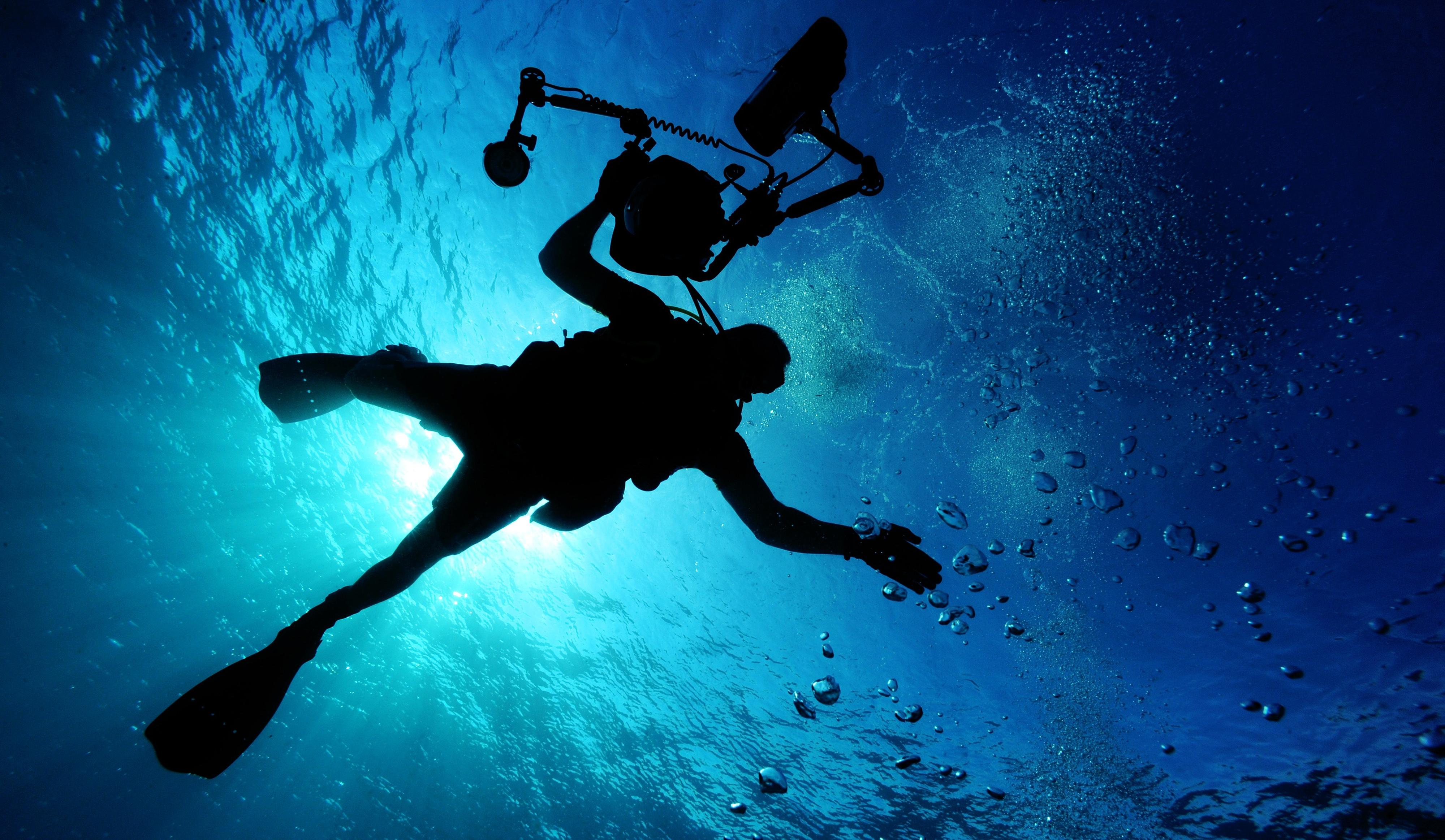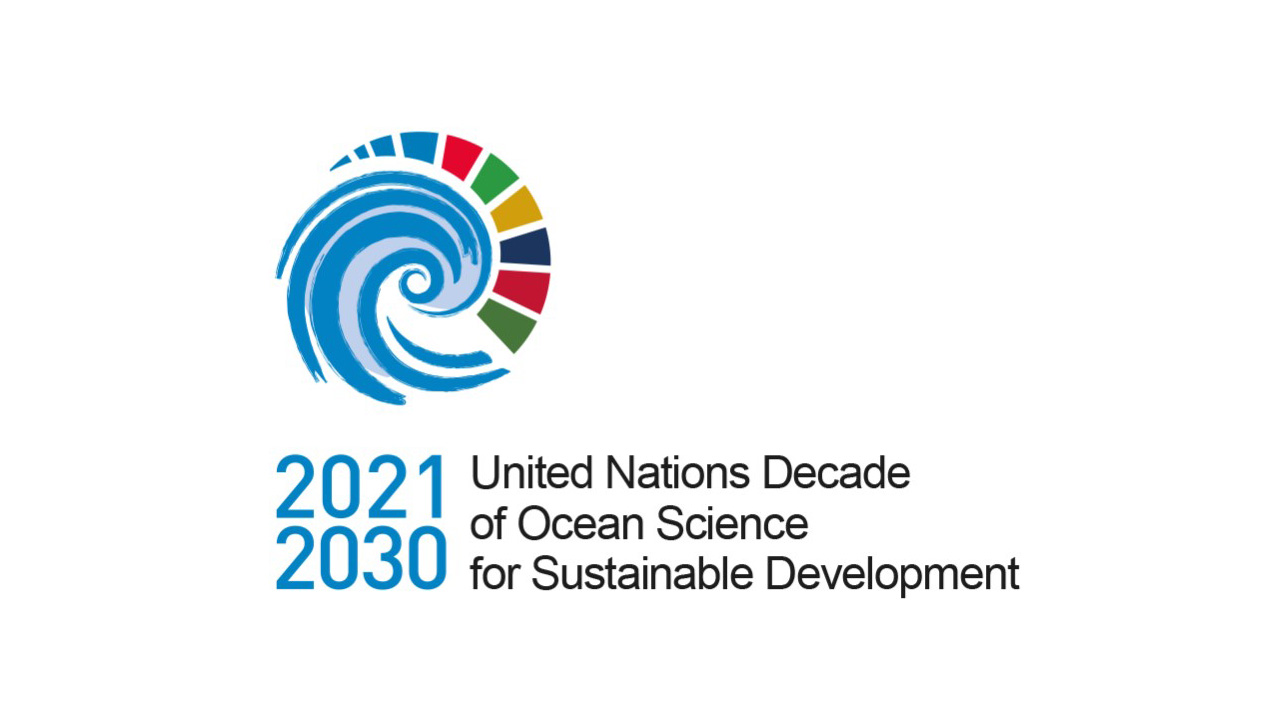Fishermen on the coast of the island of Zanzibar, Tanzania
Copyright© Rob Barnes / Grid Ardenal
Biodiversity and oceans Protecting the oceans and using them sustainably
The ocean covers 71 per cent of the surface area of our planet. It is a key component of the global ecosystem and has vast biodiversity. Without oceans, life on Earth would not be possible in its present form.
Moreover, the ocean is very important for climate change mitigation. It generates a large proportion of the world's oxygen, absorbs about one fourth of human-made carbon dioxide emissions, and provides protection from extreme weather events.
For over three billion people worldwide, fish is one of the main sources of animal protein. About half the world's population relies on marine biodiversity for their lives and livelihoods. Many Indigenous and local coastal communities depend directly on the ocean's natural resources.
Marine biodiversity under threat
Pollution, overfishing and climate change are putting significant pressure on the marine ecosystem. Particularly biodiverse marine and coastal habitats such as mangrove forests, seagrass meadows and coral reefs are being degraded on a large scale by logging, destructive fishing practices and marine pollution.
In spite of their importance for sustainable development, marine ecosystems often have inadequate protection and are usually not used in a sustainable manner. So far, only eight per cent of the world's marine area has been put under protection.
German activities
Two out of three of Germany's partner countries in development cooperation are island or coastal nations. In order to conserve marine and coastal habitats for future generations and foster their sustainable use, the BMZ is actively involved in implementing the Global Biodiversity Framework. It provides for putting at least 30 per cent of the world's land and marine areas under protection by 2030. The BMZ is supporting a fundamental change in the management of marine resources, with the goal of ensuring universal ecosystem-based management of oceans and their biodiversity. Special efforts are being undertaken to empower Indigenous and local communities engaged in artisanal fishing, and ensuring their participation.
International efforts to protect the oceans
Marine conservation is increasingly becoming a focus of international politics and global action. In December 2022, the Conference of the Parties to the Biodiversity Convention adopted the Global Biodiversity Framework, which lays down important goals for the protection of marine ecosystems.
In June 2023, the adoption of the new High Seas Treaty (External link) marked an important political breakthrough for international marine conservation. The Treaty makes it possible, for the first time, to establish marine protected areas in the high seas – in other words, to protect biodiversity beyond national jurisdiction (which is why it is also called the BBNJ Agreement). These parts of the ocean make up about half of the Earth's surface.
The United Nations has designated the period 2021-2030 the Decade of Ocean Science for Sustainable Development. The Decade aims to achieve implementation of the 2030 Agenda on the basis of science. Halting the advancing degradation of marine and coastal ecosystems requires political measures that are soundly rooted in science.
As at: 31/07/2024







